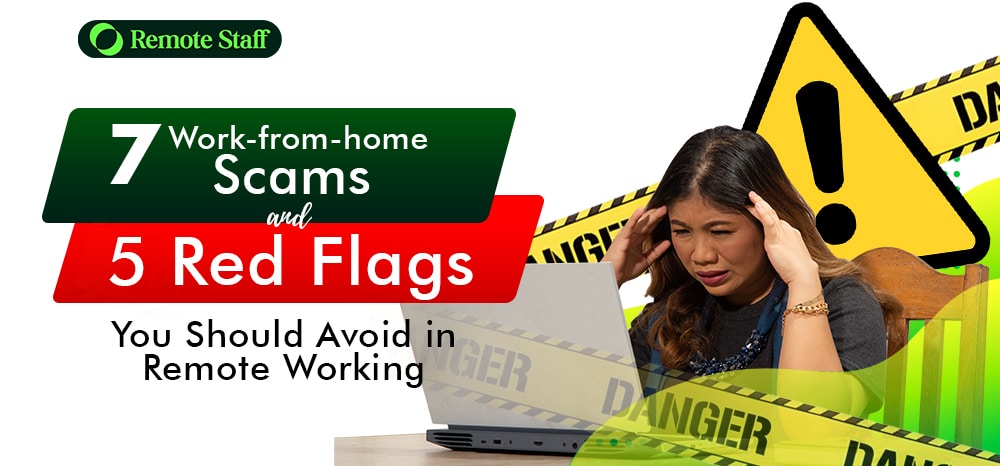There are a lot of opportunities and online jobs for Remote Working. And it’s a wise decision to grab them, especially in our economy today. After all, you will have the safety, time-flexibility, and career growth in the comforts of your home.
But with thousands of people craving for sources of income today, many unscrupulous individuals take advantage of our goals. You don’t want to be the next one to be scammed. So here are some scams and red flags you should avoid.
Paying for Equipment and Software
You are so excited to go through the interview process. And finally, you landed the job. But why do you need to purchase something to start? Why do you need to spend when you just want to earn money?
As a golden rule, you should not pay anything to get interviewed or purchase software and equipment. It is a scam. After buying their equipment through a link, you might not recover your money back.
And the scam is evolving. As you can see in this sample contract, they were not asking for outright payment.

But the contract states you will shoulder 10% of the cost with a promise of reimbursement. Red flag!
Another version is they might send you a cheque for the amount. But be wary because, after your purchase, most make a refund request due to fake cheques. So, if you don’t want to be bothered by the police, don’t ever pay something to get hired.
Amazon Account Creation Scam
It’s quite hard to enter marketplaces like Amazon to build an online shop, especially for people with a tainted record. Their solution? Why not use you to create it for them.
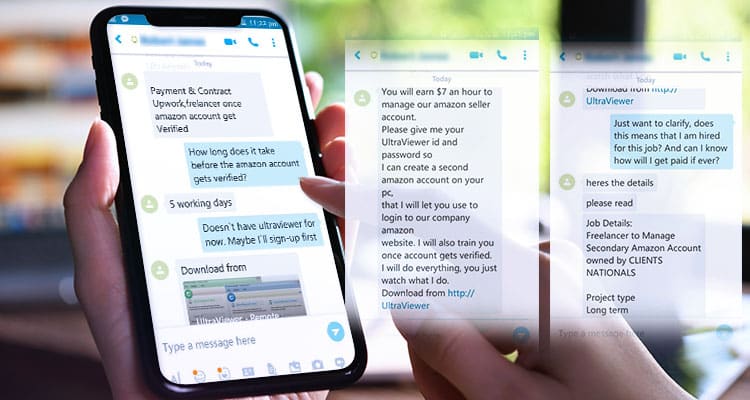
As you can see in the case above, they want to remotely control your computer to create a second Amazon account. Why can’t they do that on their own computers? Simple. They can’t because of their intention for the shop. Some use stolen identities to create one. And scam their buyers.
And when they use your computer and register with the stolen IDs, the authorities will find you responsible for the crime.
Money Laundering Schemes
Are you looking for simple sources of income online? You might stumble upon this seemingly innocent administrative job. I mean, what’s so hard with sending money from your account?
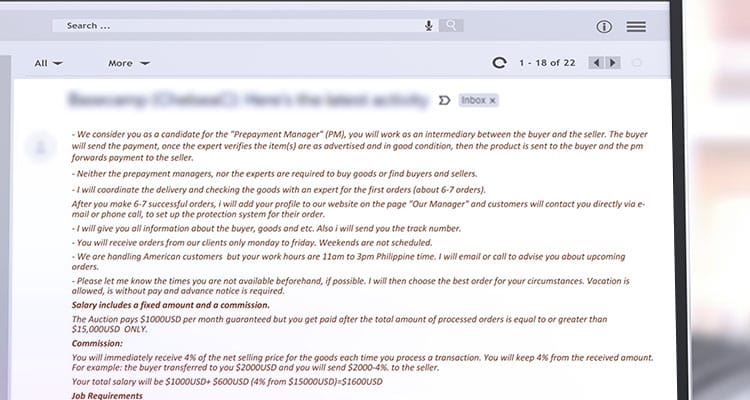
As you can see with the screenshot above, your client sends you money to your personal account or Paypal account. And then, you later send it back to them or another entity. By doing this, you get commissions. Pretty easy, right?
But my friend, you have been scammed. You are trapped in their money laundering ploy. We don’t know where that money came from. It can be from illegal sources.
So to “launder“ or make it clean, they send it to you, a seemingly normal and responsible citizen. And you washed their blood money squeaky clean by sending it back to another account!
The problem is, when the authorities trace these deposits, you will be the one in question. So never use any personal financial account as an intermediary for cash transfers. After all, it’s quite easy to directly transfer the money themselves, right? They don’t need your account as a middleman for that.
Novel Writing Refund Scam
Some authors might need the help of ghostwriters to finish a book. Or maybe a publisher wants to finish a write-up. This practice is quite normal and profitable.
But you have to check how the payment will push through.

For the above case, the process looks fine except for the payment options. First, they will send money for you to send back to the author afterwards. What they’ll do next is trigger a refund and your PayPal will be compromised.
Remember, legit publishers don’t need a middleman for payments. They can send it to them directly.
Posting on Your Personal Account Marketplace
Facebook can be a powerful tool for marketing. That’s why a lot of companies have their own pages and marketplace listings. But what if your possible clients want to use your personal accounts?
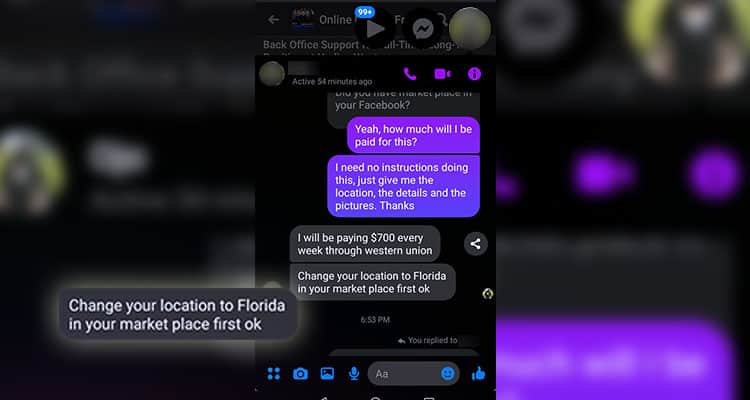
As you can see on the screenshots, the client wants to course the ads through your personal profiles. What’s the point in doing that? Isn’t it easy to have an own company account for their listings?
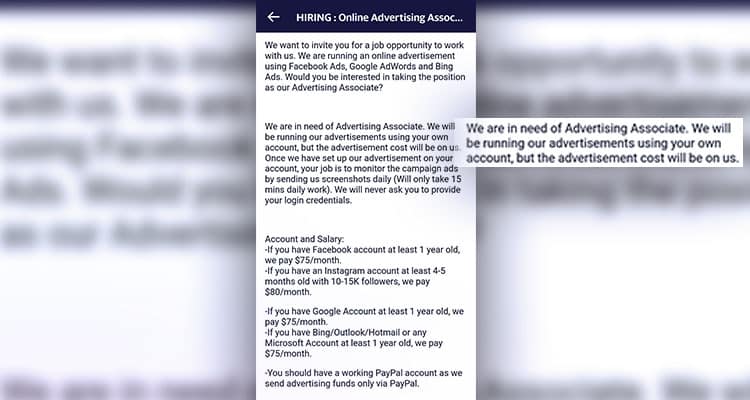
Or maybe, they can’t do anymore because of their past shady transactions on the marketplace. Facebook and other social media channels are getting strict. You don’t want your own account to be flagged. So avoid transacting with these people.

MLM Marketing
The network marketing industry is plagued with unscrupulous individuals offering their business guise as a “job.” Yes, some are legitimate companies. But some offer a pyramid scheme that can ultimately fall down through time.
But regardless if the company is legit or not, it’s no excuse to make people think that it’s a job. So ask the right questions. And if you’re looking for a remote working job, this might not be for you.

Unpaid Trial
Some companies may try you out first before hiring you full time. For creatives, you might be asked for your sample work. And create a test project. For those paid hourly like virtual assistants, you might be contracted for a short period first.
But make sure that you are paid! Most scammers would “try” you out only to leave you dry after that period. Your time is precious. Don’t waste it on these freeloaders.

Honourable Mentions
Below are not necessarily a scam, but it might lead to one. One being present doesn’t mean it’s a scam. But multiple of these present might mean one. Here are some honourable mentions that you can watch out for.
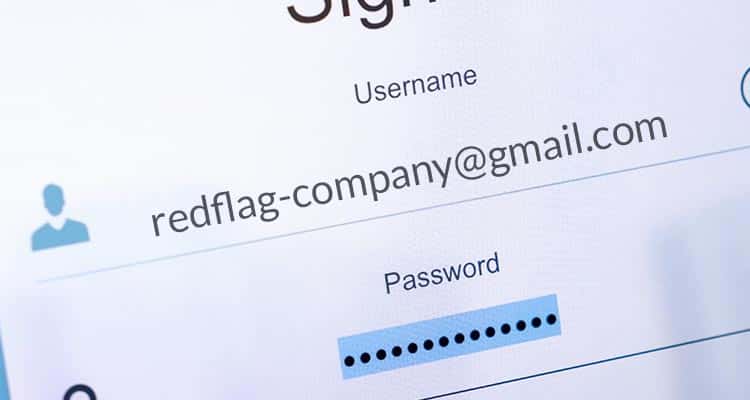
Generic Email Account
Legit companies usually have a customized email, not a Gmail, Yahoo, or any other email extension. And if you see email addresses like “cutie.pie67@gmail.com.” Better think twice.
It’s not a 100% red flag. But you should take note of this.

Little Information About the Company
Excited about an opportunity? It’s normal. But make sure that you do your due diligence. Research about the company offering the job.
If you can’t find any information about it. Or you stumble upon a poorly made website; it might be a telltale sign of a scam. Try searching for “(company name) + scam.” Or you can ask reputable remote working Facebook groups like Online Filipino Freelancers or Filipino Freelancers with Australian Clients. You might be saved because of it.

Unclear Job Descriptions
When you work for someone, you know what to do exactly. You want to know what your job entails and your deliverables.
If the job description is full of fluff words with emphasis on how much you can earn, it might be a red flag.
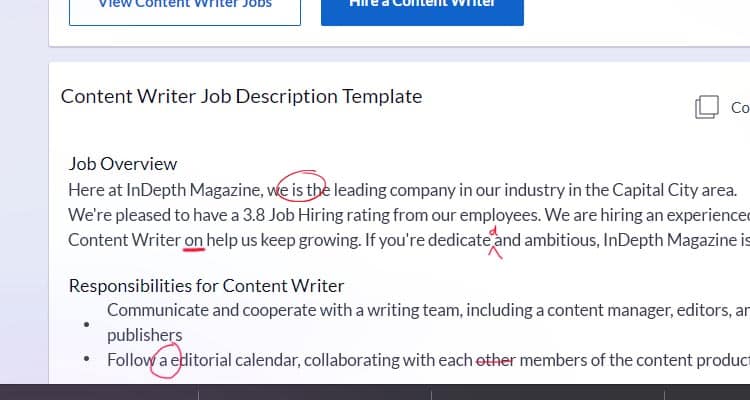
Grammatical Errors
English is not the main language for everyone. But then, if you’ll be working with a company or client, especially a western one, it’s a red flag if the job posting and the contract has full of grammatical errors. Don’t they have someone professional enough to proofread?

No Video or Voice Interview
To hire a candidate, companies interview them to ensure that they can communicate and are fit for the job. But what if your potential client interviews you only through chat? How would they gauge this?
Unless you’re a chat support representative, a video or voice interview should be expected before you get hired. How would you know that you’re talking to a real person? If you’ll be working for the long-term, you should at least get to know your boss or colleague initially through this process.
Conclusion
Scams out there are evolving. Let’s all be vigilant about the opportunities presented to us. With the information above, you have at least a baseline for common scams. If you want legitimate work-from-home jobs, you can check this link for more.
Stay safe! And we wish you a thriving remote working career.

